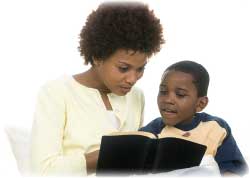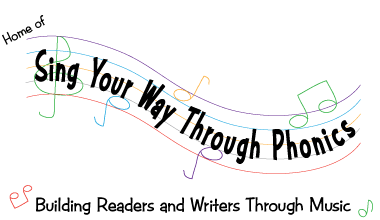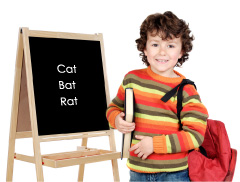Action Factor, Inc. presents the workshop for teachers and parents…

How Children Learn to Read
And What You Can Do To Help
Presenter: Dr. Myrna R. Gifford
Workshop overview: This workshop highlights the stages of reading and writing development and explains how each stage of development is affected by experiential, personality, social, environmental, and cultural influences. Helpful hints are included for building literacy foundations, assisting students in each stage of development, creating literacy-rich environments, and teaching balanced literacy lessons. The information is particularly helpful for parents, grandparents, tutors, and teachers who want to know what they can do to help their students succeed in school.
Objectives of the presentation: Participants will learn:
- strategies for building literacy set,
- activities for developing phonemic/phonological awareness, word recognition, fluency, vocabulary, and comprehension,
- building effective lessons based on the reading process.
Participants will receive a packet of ready-to-use activities that can be adapted to individual needs and curricula.
Format of the presentation: Workshop with audience participation. This is an interactive workshop where participants work in partners or small groups to sample games and activities, analyze reading problems, and develop reading comprehension questions.
Target age group: Pre-school through middle school
The target audience: Classroom teachers, administrators, pre-school teachers, tutors, parents, and others who wish to help young readers and writers develop their full potential.
Brief summary of content: Ready, set, read! The journey toward reading and writing begins with building a “literacy set” so that students come to school ready and eager to learn to read and write. Five keys to building a strong literacy set are:
- reading early and often,
- creating a print-rich environment,
- modeling reading and writing,
- accepting students’ approximations,
- developing an attitude of playfulness about language.
On the journey from phonemic awareness to word recognition, good readers use several interacting strategies: configuration, phonics, context, syntax, and structural analysis. But before readers can effectively comprehend, they must attain fluency and acquire an adequate vocabulary. Reading comprehension takes place at the literal, inferential, and critical levels, depending upon the reader’s purpose for reading. Children can be helped to maximize their reading and writing experiences by strengthening their word recognition, vocabulary, fluency, and comprehension strategies through dynamic, engaging, and enjoyable activities.
To request a customized workshop at your location, please use our online form.


